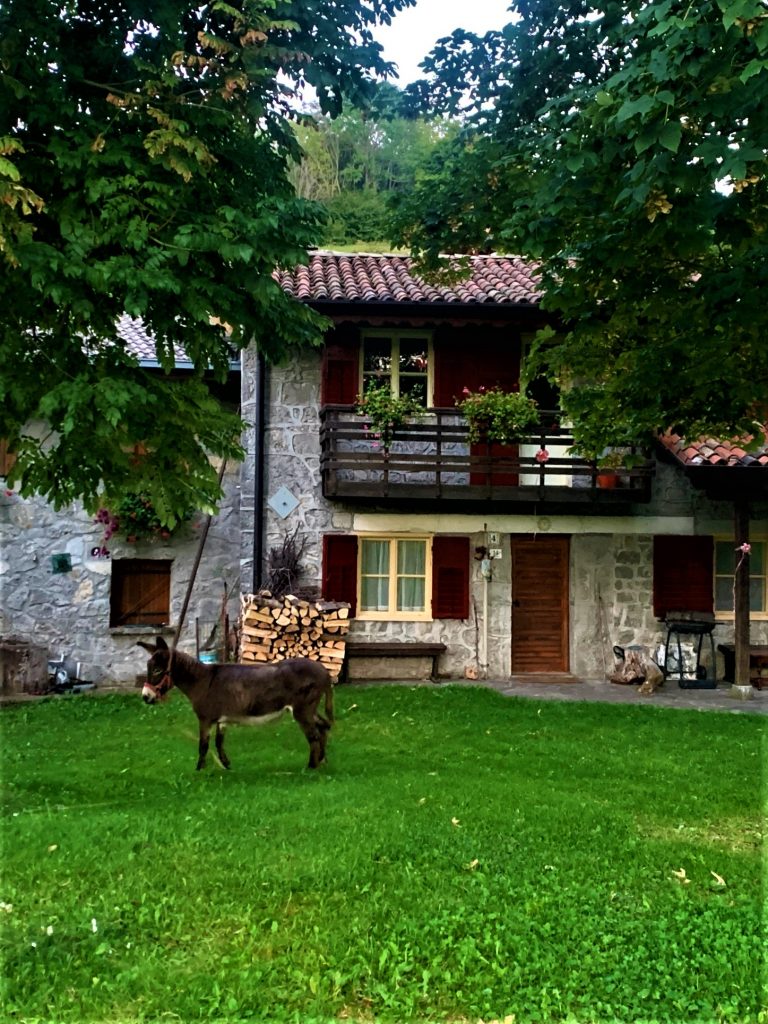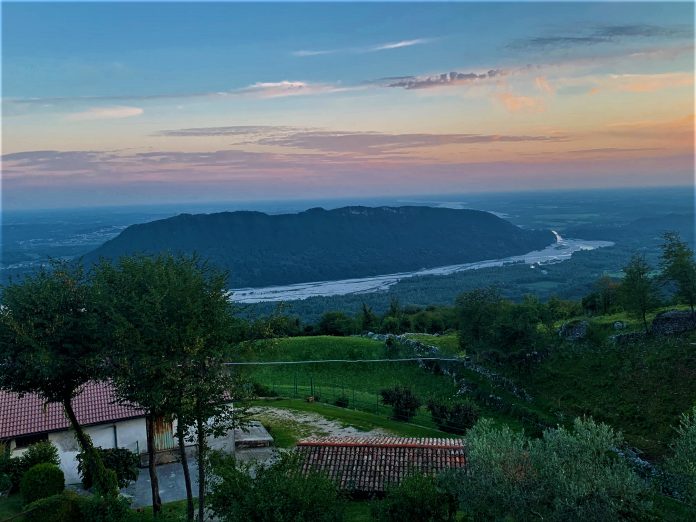
Hot water and polenta, what else?
By Alessandra Ressa
Life in Monte Prat in my tiny cottage in the woods at the foot of Friuli’s Alps has definitely taken a turn for the best once I got my electric water heater. Before this “luxury” item entered my bathroom, showers had been cold, lukewarm at best, and quick.
A shower meant spending between one and two hours lying on the cold bathroom floor, head next to the toilet bowl (the bathroom is very small), while incessantly feeding tiny twigs to an old fashioned wood-burning water heater at floor level.
Showers had to be planned hours in advance. Not only that but you had to introduce tons of twigs into the burner one by one through a minuscule door. If you got distracted for just half a minute, the fire would go off and you had to start all over again.
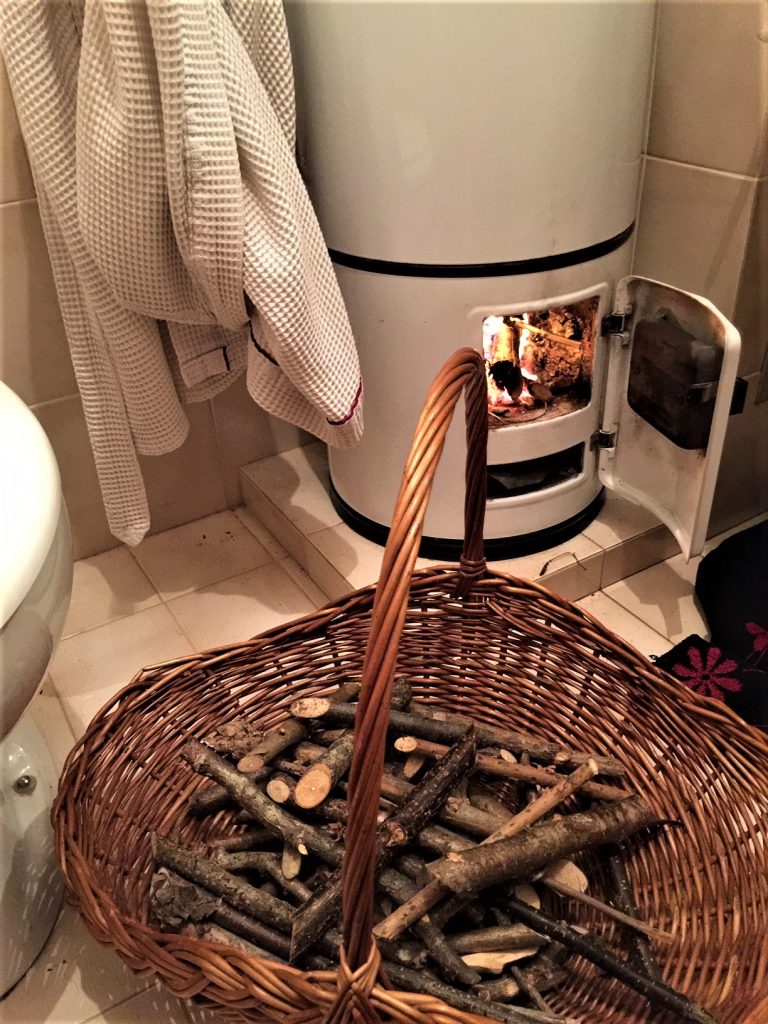
When plumber Luigino eventually managed to find the time to remove the infernal machine and replace it with an electric water heater, I thought my heart would explode with joy. But when I shared the good news with my neighbors (after taking a 30-minute sizzling hot shower that left me red in the face for the rest of the day), I was very much criticized for being so spoiled and frivolous.
“Why did you get rid of a perfectly good water heater – asked my perplexed neighbor Pierino – what are you going to do if a tree falls on the electric line and the power goes off? If the stuff works you should keep it and throw it away only if it breaks and can’t be fixed”.
Later, I followed his advice and bought a new computer when my old one got electrocuted by lightning during a storm and was beyond repair. I had left it momentarily in the woods near my house on top of a hill where the phone signal is strong enough to hold classes online and had just entered the house to grab a snack when lighting struck. That Mars bar probably saved my life.
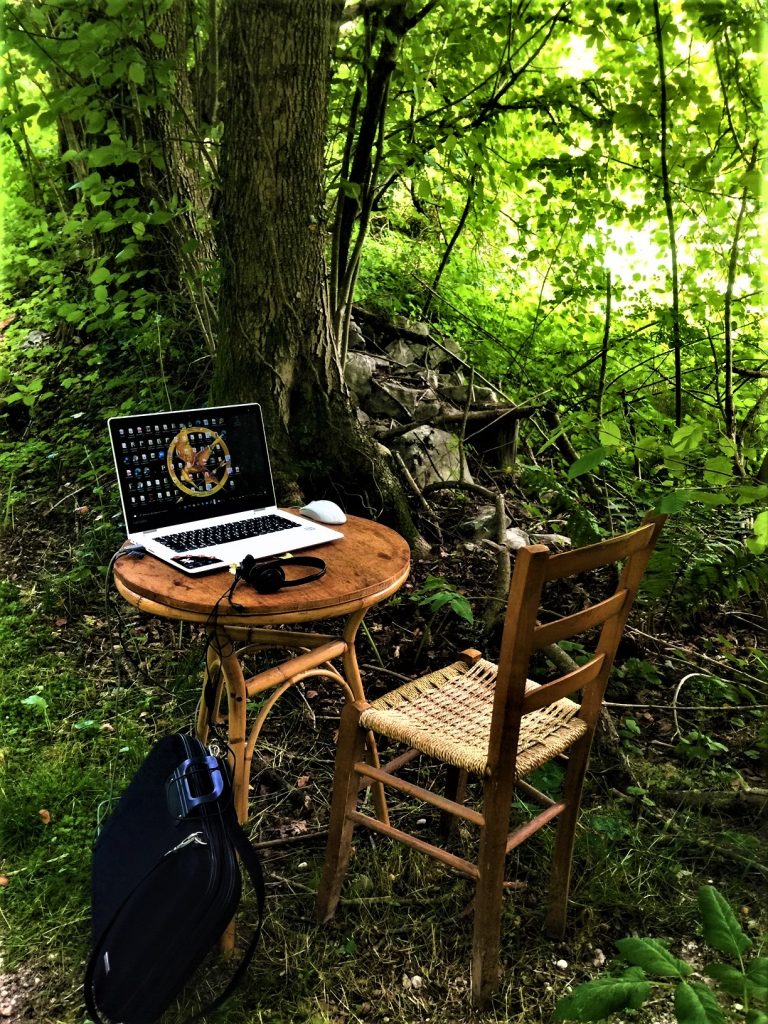
Of course once you go back to modern comforts, you simply can’t stop. I learned to ignore my neighbors’ disapproving look and even went as far as buying a washing machine (goodbye laundry in the kitchen sink for days) and a second-hand fridge, to replace the hole in the wall the previous owners had used to keep their foods cool. I still have no heating and at 1,000 meters above sea level this is something I will have to think about soon.
One necessity that may be a little complicated to get in reasonable time is access to internet. Teaching from the top of the hill in the woods is definitely original, but can be annoying on rainy days. And it rains a lot in Monte Prat. On rainy days and due to better connection, I often teach from one of my neighbors’ house.
He lives close to Biagina’s, the only café, restaurant and hotel in the area, a sort of one-house financial district, which I call downtown Monte Prat. My neighbor’s nickname is Beppino. Suffixes like -ino for male and -ina for female are used to express endearment, for kids and adults alike, since childhood. There is no escape over here, if your name doesn’t end in -ino or -ina, you’re not to be trusted.
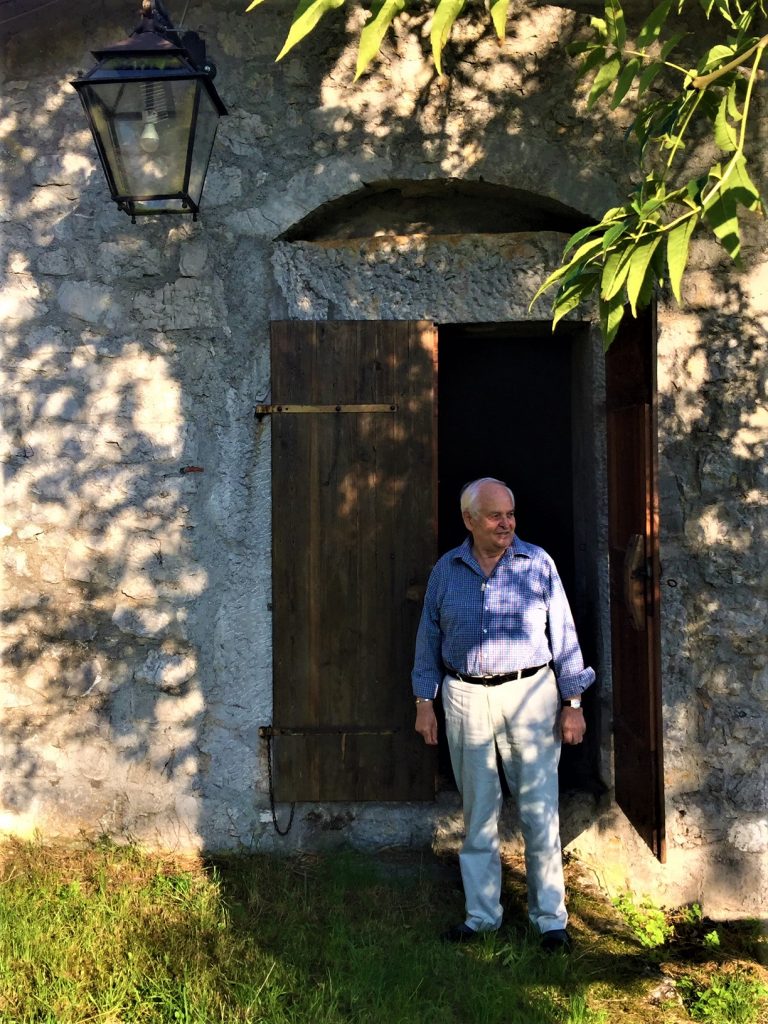
Beppino, entrepreneur and author, was raised in Monte Prat and has lots of great, funny and heartbreaking stories to share about his childhood on the plateau, where he and his family grew up as subsistence farmers. He remembers with great lucidity all the events related to his life, from the Nazi occupation of the area and resistance fighters hiding in the forests, to the hard life of farmers and the poverty and hunger he and his family suffered. The arrival of water and electricity in the plateau after the war began improving the residents’ lives, but many decided to migrate to France and Canada.
Then the terrible 1976 Friuli earthquake struck. The epicenter was only a few kilometers away. Beppino, who has recently turned 84, has just written a book of memoirs that contains these and many more events of his fulfilling life. His book, “Incontro Improbabile” (Unlikely encounter), will be presented on Saturday 25th September in the beautiful council hall of the municipality of nearby Forgaria nel Friuli. Young Entrepreneur and Mayor of Forgaria, Marco Chiapolino has enthusiastically supported the event.
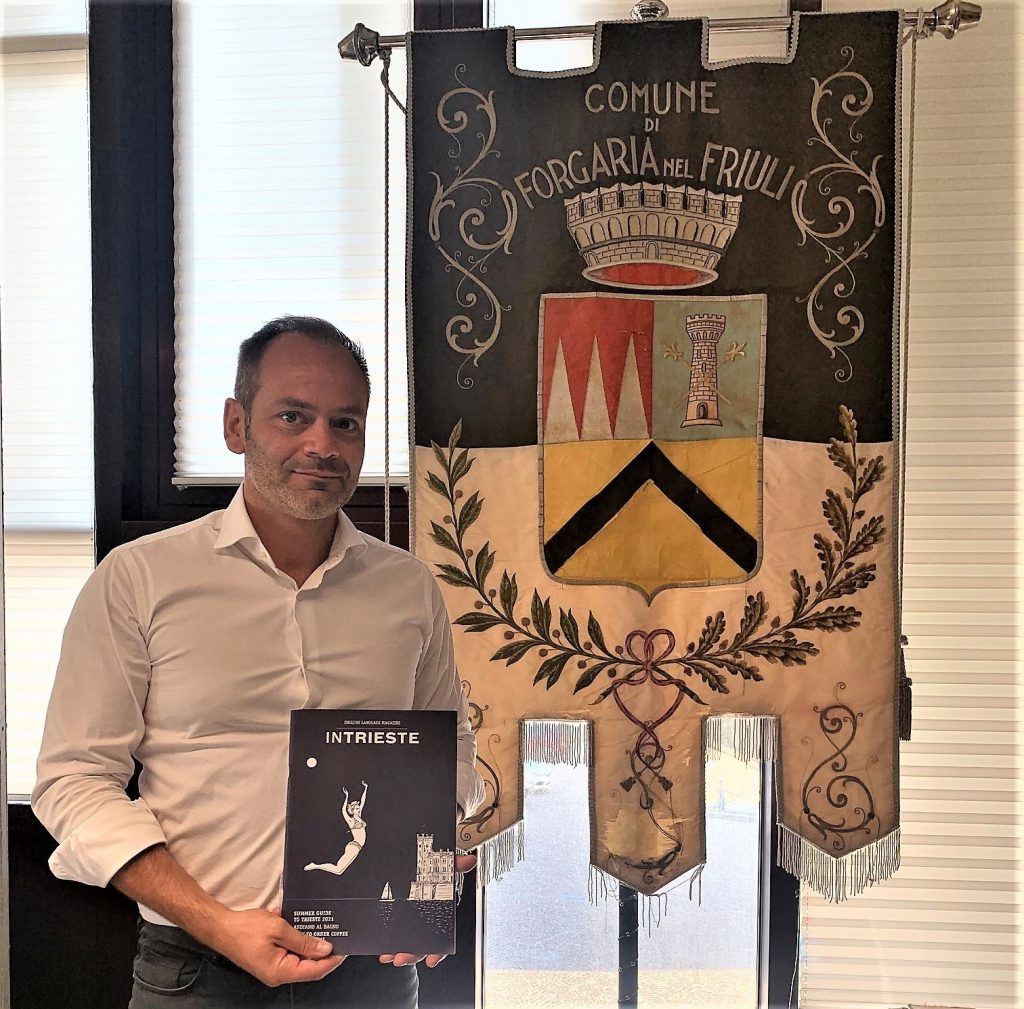
As a privileged and pampered guest of this beautiful corner of Friuli, I have often been treated to local specialties by my neighbors. I was very surprised, however, to discover that, in addition to being a successful businessman and writer, “Beppino” Jogna is an excellent chef when it comes to Friuli’s most popular dish, polenta.
Polenta is traditional food in this part of Italy which saved local populations from starvation for hundreds of years. Rich and nutritious, this particular meal is made entirely from ground yellow corn. Every Friulano will tell you with pride that polenta and Friuli have been an inseparable pair since the beginning of time.
Corn, however, was imported from America and reached the region only in the 1500s. Today, Friulani cook it over the traditional brick stove called spolert. The secret is in the corn flour, which has to be ground in the proper mill with the proper texture, and cooked on a wood flame in a special copper pot called paiolo, adding just the right amount of water for a minimum of forty minutes. The hardest part is the stirring. If you stop to rest your sore arms, it will immediately stick to the bottom of the pot and burn.
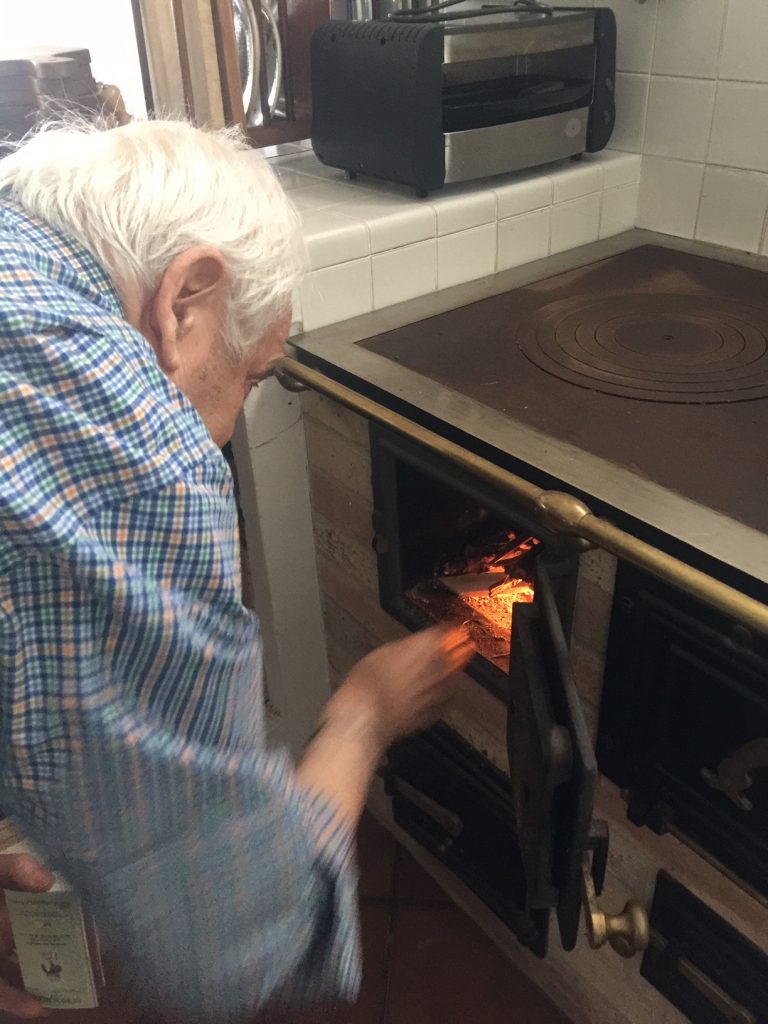
After polenta reaches the proper thickness, it is quickly, and not with little effort, poured over a circular wooden board and spread to cool with a long, flat wooden spatula that looks like a paddle. In the old times, the crunchy, burned layer stuck to the pot used to be reason for family feuds as empty-bellied children fought over that extra nourishment. Today, at a time when in this part of the world it’s almost impossible to believe people suffered starvation, chicken feast on it. And did you know? Until recent times, a woman in rural Friuli was considered worthless if she couldn’t cook proper polenta. As meals were exclusively a woman’s task, that was the worst offence she could receive and rest assured it would be impossible for her to find a husband.
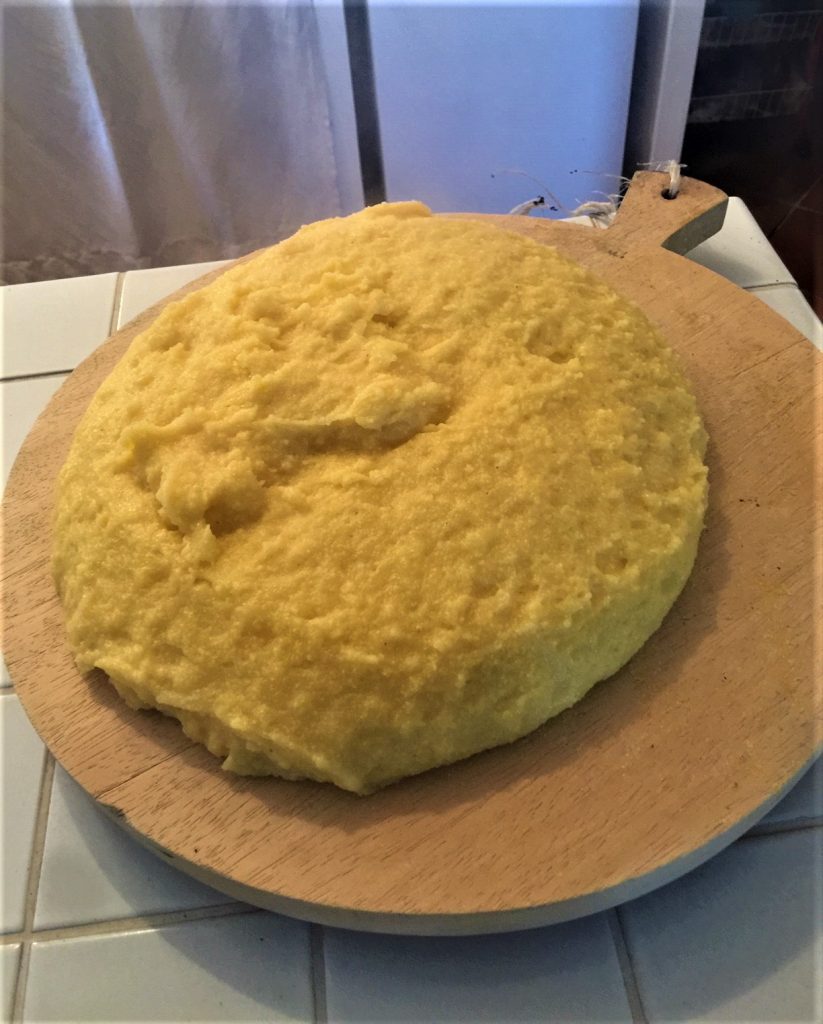
Polenta was, and still is here in Monte Prat, occasion for families to gather by the fire and enjoy a traditional dinner together. Leftovers are cut into thick slices and preserved for the next day, to be eaten for breakfast with cheese and cold cuts.
It’s now Autumn, and the magnificent beech tree forests are beginning to change color and will soon paint Monte Prat in bright red and yellow. Mushrooms are sprouting everywhere and forest animals are hurryingly piling up food in their nests for the approaching winter. Hopefully, the colony of dormice I have evicted from my attic has found new accommodation by now. Your Queen of the Forest too, after months of solitary joy and adventures, will go into temporary hibernation.
